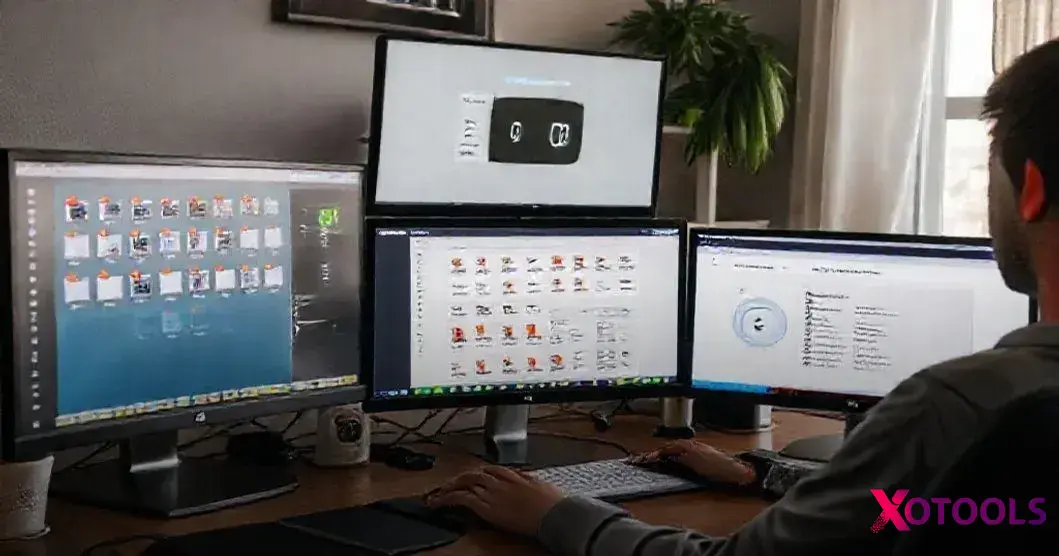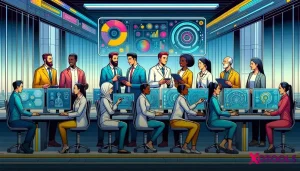ADVERTISEMENT
Tech tips for beginners open a door to the digital world. With new technology emerging, knowing the basics can be overwhelming. Fear not! Everyone can master essential skills.
Simple tools and resources empower beginners to thrive online. From enhancing productivity to protecting privacy, these tips are indispensable. Every expert once started where you are now!
Keep reading to discover valuable insights that will boost your confidence in the tech space.
Essential Tech Tools for Newbies
Essential tech tools for newbies can make your digital journey much easier. Programs like Google Drive allow you to store and share files online. This means you can access your work from any device, making it simple and convenient.
Another great tool is Canva. It helps beginners create stunning graphics without needing advanced skills. With its user-friendly interface, anyone can design professional-looking images for social media, presentations, or personal projects.
Finally, using a tool like Zoom can help you connect with others. Video calls are great for meetings or just catching up with friends. These tech tools empower newbies to communicate and collaborate easily in the digital age.
Beginner-Friendly Software Recommendations
For beginners, Microsoft Office is a great software choice. It includes useful programs like Word, Excel, and PowerPoint. These tools help with writing documents, making spreadsheets, and creating presentations easily.
Another excellent option is LibreOffice. It is free and offers similar features to Microsoft Office. With LibreOffice, beginners can create various types of documents without spending any money.
If you want to edit photos, try GIMP. This software is free and provides powerful editing tools. Beginners can learn to enhance their images and create stunning graphics with GIMP’s user-friendly interface.
Getting Started with Coding

Getting started with coding is fun and exciting! You can begin by learning HTML, the language used for creating web pages. It’s simple and lets you create your first website in no time. You just need to write some basic tags, and you’ll see your ideas come to life on the screen.
Once you’re comfortable with HTML, try learning CSS. CSS helps you style your web pages, making them colorful and appealing. You can change fonts, colors, and layouts to make your website unique. These two languages are the foundation of web development.
To practice coding, use free resources like Codecademy or Khan Academy. These platforms offer beginner-friendly courses and interactive lessons. With consistent practice, you’ll gain the skills to create amazing websites and applications!
How to Clean Your PC
Cleaning your PC is important to keep it running smoothly. First, start by removing dust and dirt from your computer. Use a soft, dry cloth to wipe down the case, keyboard, and screen. Make sure to turn off your PC and unplug it before cleaning. This ensures safety and prevents damage.
Next, uninstall any software you no longer use. Navigate to your computer’s settings to find Programs or Apps. Here, you can see all the programs installed. Simply select the ones you don’t need and click uninstall. This helps free up space and can make your PC faster.
Finally, run a virus scan using your antivirus software. This step helps to find and remove harmful files that can slow down your computer. Regular scans keep your PC safe and secure. Keeping your computer clean and free from clutter enhances its performance over time.
Understanding Basic Cybersecurity
Understanding basic cybersecurity is important for everyone. Cybersecurity protects your personal information and devices from online threats. Simple actions like using strong passwords can make a big difference. A strong password includes letters, numbers, and symbols. Avoid using easily guessed information, such as birthdays or names.
Another key aspect is avoiding suspicious links and emails. Cybercriminals often use fake emails to trick you. If you receive an email asking for personal information, always think twice before clicking on any links. It’s best to verify the source before taking action. Stay alert and be cautious to avoid scams!
Lastly, keep your software updated. Software updates often include security fixes that protect against new threats. Enable automatic updates if possible, so you always have the latest protection. By understanding these basic cybersecurity tips, you can keep your digital life safer and enjoy using technology without worry.
Tips for Managing Your Digital Life

Managing your digital life starts with organization. Use folders to keep your files tidy on your computer or cloud storage. Label each folder clearly so you can find documents quickly. This saves time and makes it easier to stay focused on what you’re working on.
Next, set limits on your screen time. It’s easy to get lost in social media or video games, so scheduling breaks can help. Try using apps that track your time online. This way, you can see where you spend most of your time and make changes if needed.
Lastly, make sure to back up your important data. Use an external hard drive or a cloud service for backups. Losing files can be stressful, but having copies ensures you won’t lose important information. Regular backups give you peace of mind, making it easier to manage your digital life.
Exploring Online Learning Resources
Exploring online learning resources can open many doors for beginners. Websites like Khan Academy and Coursera offer free and paid courses on various subjects. Whether you want to learn math, coding, or history, these platforms have something for everyone. You can learn at your own pace, making it easy to fit studies into your schedule.
Another great resource is YouTube, where thousands of educational channels share fun and engaging content. From tutorials to lectures, you can find videos on almost any topic. Channels like CrashCourse and The Coding Train make learning entertaining and informative, helping you understand complex ideas easily.
Finally, consider joining online forums and study groups. Websites like Reddit and Discord have communities focused on learning. You can ask questions, share resources, and connect with others who are also eager to learn. Engaging with others can make your educational journey more enjoyable and productive.
Social Media Tips for Beginners
When starting with social media, it’s important to choose the right platforms. Focus on where your interests and audience match. For example, Instagram is great for sharing photos and videos, while Twitter is perfect for quick updates and news. Start simple by setting up profiles on one or two platforms that you enjoy the most.
Another useful tip is to create a posting schedule. Consistency helps keep your audience engaged. Plan when you will share your content and stick to this routine. You can use tools like Buffer or Hootsuite to schedule your posts in advance, making it easier to stay on track.
Lastly, engage with your followers. Respond to comments and messages to build connections. Ask questions in your posts to encourage conversation. Being active and relatable will help you grow your online community, making social media more enjoyable for you and your followers.







